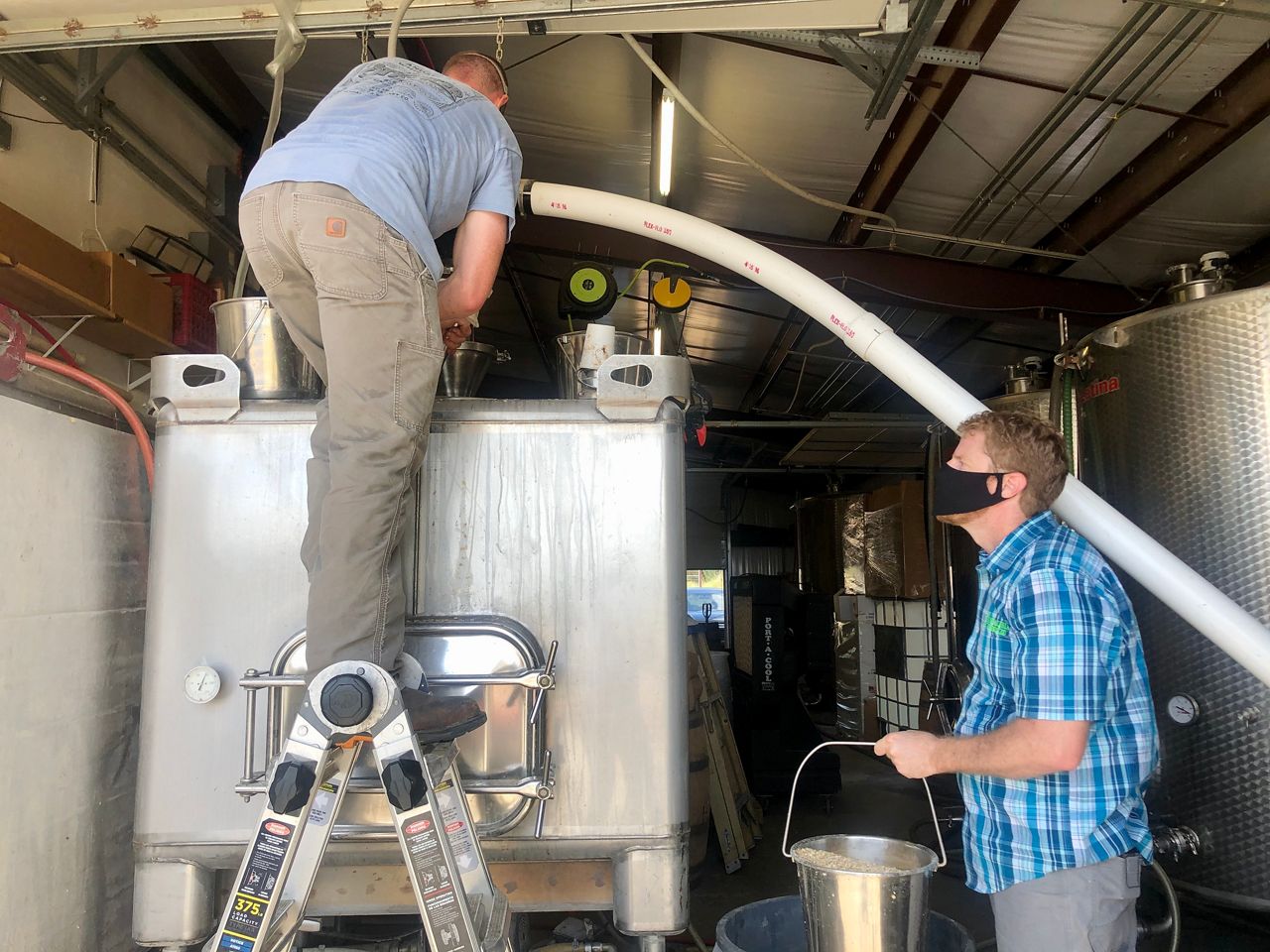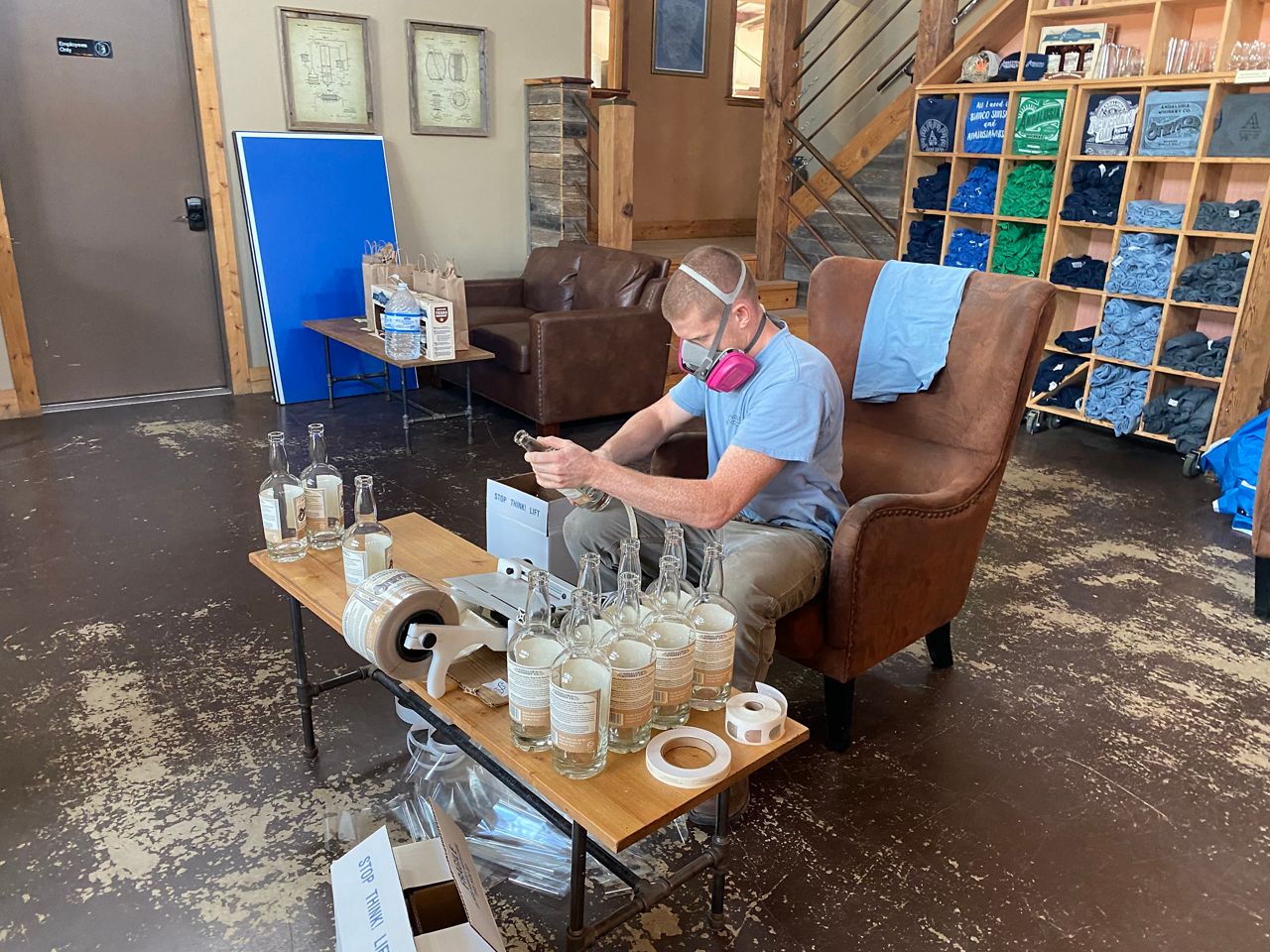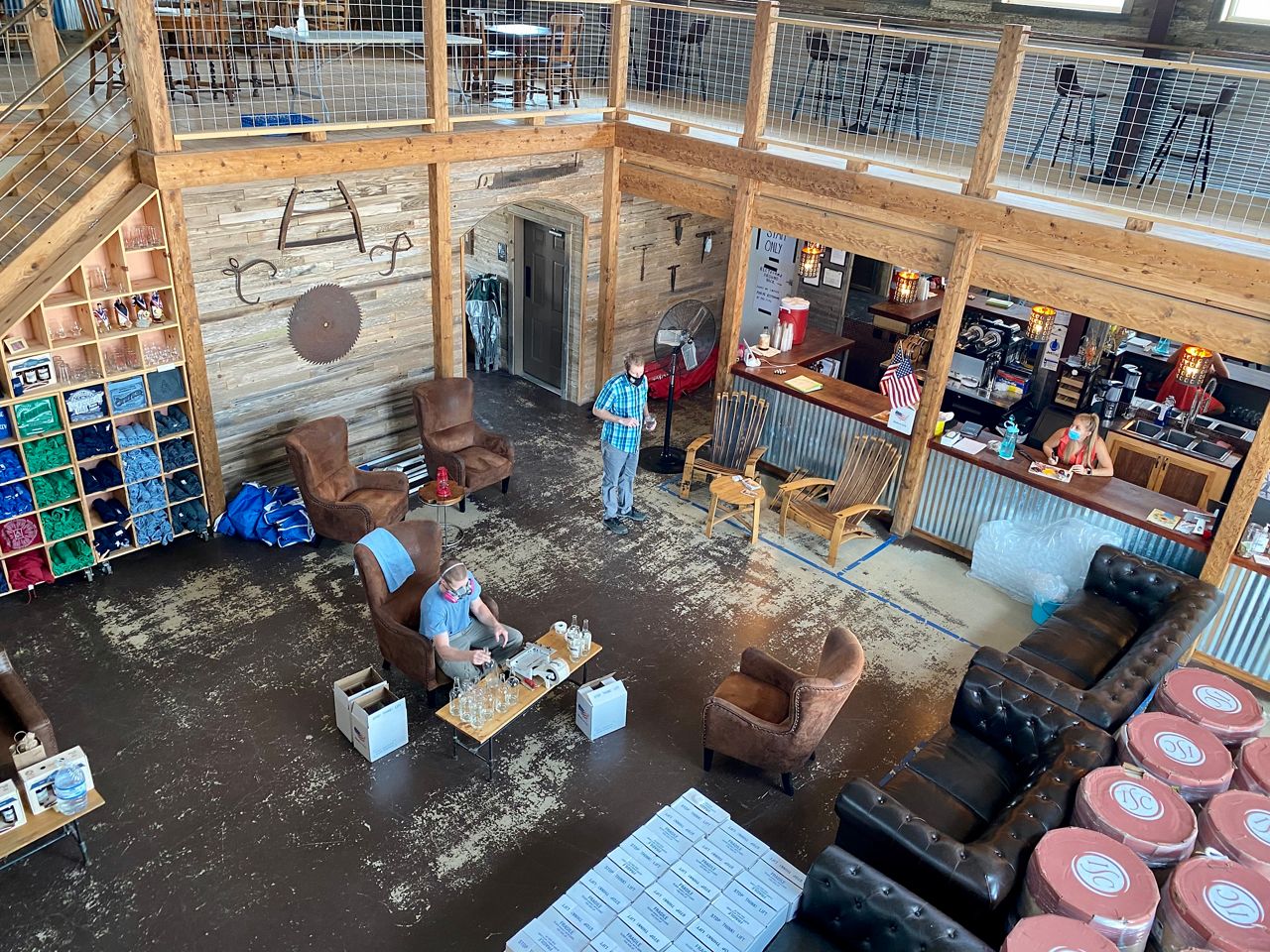BLANCO, Texas — Some Texas business owners say they have been inadvertently dragged into the debate over shutting down bars in Texas.
When Governor Greg Abbott closed such establishments because of rising coronavirus risk, the order included distilleries, wineries, and breweries. There is now a push for these businesses to be exempted.
The mushing and the malting may be some proof the workers of Andalusia Whiskey do more than sell alcohol. Since the liquor is made from scratch, owner Ty Phelps considers his Blanco-based business a manufacturer.

“We can take grain a really base ingredient and turn that into high proof alcohol,” Phelps said.
But distilleries in Texas shut down again after Governor Abbott’s order in June to close businesses where alcohol sales account for at least 51 percent in revenue.
“We have been able to pivot a little bit by producing brandy for a local winery, because that doesn't have any input costs for us. But really, at this point, it's just about keeping the employees busy and keeping them on the payroll,” Phelps said.

Andalusia Whiskey’s tasting room, which sits on farmland, remains closed, while customers can only buy a limited number of bottles to go. Used barrels, glasses, and other merchandise are also for sale. Like many distilleries earlier in the pandemic, workers made hand sanitizer, but that has since slowed down because typical suppliers have picked up production.
Phelps said the revenue for his four-year-old business are now cut in half.
“Second shutdown now, we don't have the sanitizer sales anymore. We don't really consider ourselves a bar. We close at 5 o’clock. We're a manufacturing facility, and we really proved ourselves essential during the beginning of the pandemic,” he said.

Industry organizations are now calling on the governor and the Texas Alcoholic Beverage Commission to update the definitions. Spencer Whelan, executive director of the Texas Whiskey Association, said for distilleries there is a tourism component, as well.
“A distillery environment is completely different than some of the other environments that have been closed intentionally,” he said.
If distilleries do have to stay closed in the interest of public health and safety, the Texas Whiskey Association is hoping state officials could expand contactless sales. That includes being able to sell more than two bottles per person a month, sell all seven days of the week, and ship and deliver directly to customers with age-verified methods.

“Unfortunately, the law forces people to be physically present to buy from distilleries, that's a very different scenario than, say a cocktail-to-go offering at a restaurant,” Whelan said.
These business owners want more options, so it does not mean last call for Texas distilleries during the pandemic.
“Businesses are failing left and right, if you can lighten up regulation in order to allow a business to survive during a really unique and unusual situation. I think it's a no brainer,” Phelps said.




